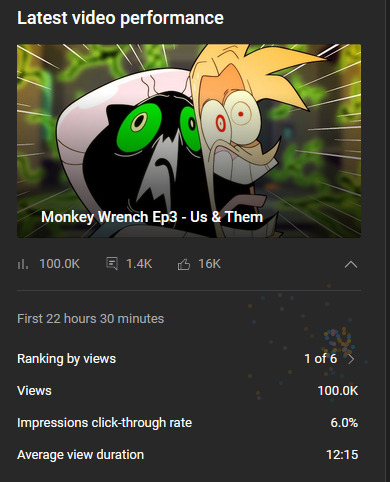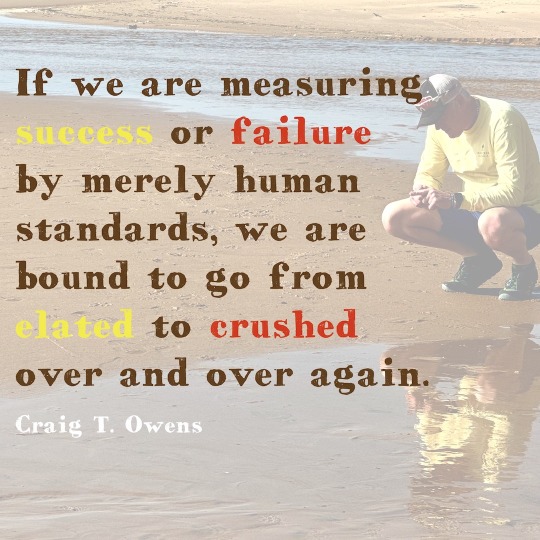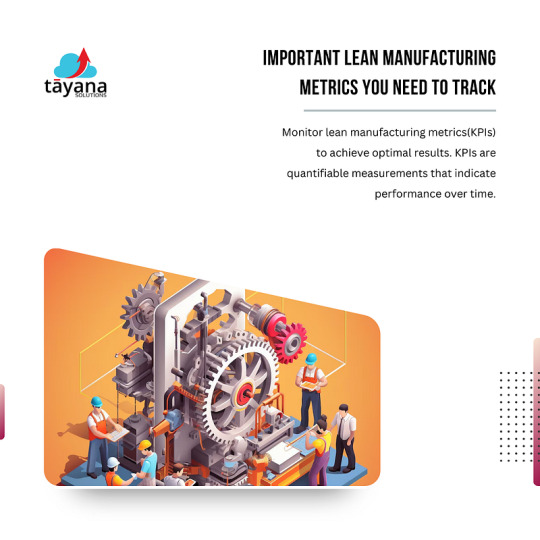#metrics
Explore tagged Tumblr posts
Text
100k views in under 24 hours

That's pretty big for us, not gonna lie.
Thanks to all those who've been spreading the word of the monke, we greatly appreciate all your support~
555 notes
·
View notes
Text
Writing Notes: Metrics
Poetic Language is organized into rhythmical units which appear in print as lines.

In Europe, the traditional study of versification, or prosody, was based on the rules of Latin scansion.

Poetic lines would be analysed into combinations of stressed and unstressed syllables known as feet.
Five types were formerly prominent in English verse, as shown above.
Lines would then be classified in terms of the number of stressed syllables they contained, as shown above.
In theory, there is no limit; in practice, most English metrical lines are found to be 5 feet or less; when they exceed 6 feet, there is a strong intuitive tendency to break them into 2 parts.
Combinations of foot-type and line length produced such designations as iambic pentameter – the heartbeat of much English poetry – and analyses in these terms were the staple of traditional metrical studies, which traced the norms of English poetic rhythm and evaluated the way poets deviated from these norms.
As a system of description, it worked quite well in giving an account of the regular lines of traditional poetry.
But it came to be criticized on several counts:
It was often mechanically applied, with students being taught to identify the form of metrical patterns at the expense of their function, or role, in a poem.
It was unable to cope well with lines containing unusual rhythm sequences.
With the bulk of modern poetry no longer using such metrical patterns, but working instead with ‘free’ kinds of verse, the traditional system of description came to be viewed as largely irrelevant.
Today, metrists work in several alternative ways, not restricting themselves to the notion of stress, but bringing in other prosodic systems, such as tempo and intonation, and a general concept of rhythmical weight.
Source ⚜ Word Lists ⚜ Notes & References
#metrics#poetry#writeblr#literature#dark academia#writing reference#spilled ink#writers on tumblr#writing prompt#poets on tumblr#writing inspiration#creative writing#writing ideas#light academia#writing resources
143 notes
·
View notes
Text

28 notes
·
View notes
Text
True merit vs manufactured merit
Recently, I came across some translated interviews with Xiao Zhan's colleagues from "The Legend of Zang Hai" — directors, fellow actors, producers who worked with him during filming in early 2024, and first of all I want to thank Xiao Zhan World for the dedication and skill. You can find this fan's contributions on FB, Youtube, and Telegram (@Xiao_Zhan_World).
What I saw when I was reading Xiao Zhan’s colleagues’ words is recognition of true merit. It is such a lovely read.
Director Zheng Xiaolong: "Throughout the filming process, he was always completely immersed in his role. From the moment I saw him arrive on set, I never saw him distracted by any nonsense outside of acting."
Director Cao Yiwen: "What surprised me most was his determination to push his limits and challenge himself."
(there is more where these quotes came from! really great quality translations)
These colleagues focus on craft, creative problem-solving, professional dedication, collaborative spirit. They speak from direct experience of working with him, watching his process, seeing his choices under pressure.
This is recognition based on witnessed true merit — recognition earned through shared professional experience, observed over months of intensive work.
I've been thinking about what I call "manufactured merit" — the impossible situation that gets created when organized fan support, however well-intentioned, makes it harder rather than easier to recognize authentic achievement.
Here's what I mean: Xiao Zhan recently won in 4 nominations by popular vote at an awards event. It's the kind of achievement that “should” feel celebratory. But think about what that recognition represents — coordinated voting campaigns, organized streaming efforts, systematic fan mobilization.
But here's the cruel paradox: the more organized the fan support becomes, the more ammunition it creates for anyone who wants to question whether the success is "real." Every coordinated campaign leaves traces. Screenshots of voting instructions, proof of organized purchasing, evidence of systematic support. And in competitive entertainment environments, those traces can be weaponized by rival fandoms or critics to suggest that achievements are "artificial" rather than earned.
Engaging with manufactured metrics can trap you in defending authenticity instead of simply doing excellent work.
Notice what XZ Studio team chose to amplify : recognition from the China Television Arts Committee and Xinhua News Agency calling the drama "a breakthrough in Chinese aesthetic expression." Professional recognition from cultural authorities, focused on artistic merit and cultural contribution.
#xiao zhan#legend of zang hai#zang hai zhuan#merit#true merit#manufactured merit#real person fandom#fandom#fan wars#fandom wars#appreciation#recognition#datafied fandom#metrics
8 notes
·
View notes
Note
How do preorder numbers affect your side of production? I’ve seen people saying that high preordering numbers lead to less time/budget to make the next game, because higher ups see it as proof that a studio/series can ride on name recognition instead of quality; is that true to your experience? In general, for a given game you worked on, would you prefer that people preordered or waited to day 1 purchase? Or does it not make a meaningful difference either way? Thanks!

Up until around 2014, preorder numbers were strongly correlated with financial success. They were used as the main metric for determining an upcoming game's chance of hitting its goals. Unfortunately, this caused a common feedback cycle problem with key performance indicators - the more you optimize for the metric itself, the less that metric continues to correlate to what you actually want to know. Publishers and retailers pushed various tactics to pressure customers to preorder, which did result in more preorders. However, the artificially-juiced preorder numbers didn't correlate as strongly with the success of the games. As lifestyle games grew into the biggest chunk of the market, preorder importance fell even more because it was the lifestyle game populations that were most strongly correlated with financial success.

The quality element you mention has nothing to do with preorders. Most games have two to four years of total development time before they ship. Preorders for those games often aren't available until a few months before the release date. By the time the preorders numbers actually come in, we're nearly finished with the development process. The timing doesn't line up at all, there is no way we can cheap out on quality in the last few months of development when the majority of that work is already complete.

As for whether I think players should preorder... I'll tell you what I do personally when it comes to purchasing games. I don't care much for preorder bonuses in general - they are almost always very small and won't affect the overall gameplay in any significant way. Preorder bonuses are generally limited to cosmetics at best, and the gameplay itself matters much more to me than having a particular outfit or weapon skin. There are some games I will preorder because I really like the game or franchise and I am concerned that the publisher has limited print runs of that game (Atlus, for example, is famous for having small print runs). Aside from that, I usually wait to see how the game does at launch before buying in. I don't feel much pressure to get in on day 1. Waiting a week or two won't kill me, and I've got plenty of other games to play and things to do in the meantime.
[Join us on Discord] and/or [Support us on Patreon]
Got a burning question you want answered?
Short questions: Ask a Game Dev on Twitter
Long questions: Ask a Game Dev on Tumblr
Frequent Questions: The FAQ
30 notes
·
View notes
Text
Slimming down
Like all software metrics, "lines of code" shouldn't be applied blindly.
Today my software WIP's LoC metric is rapidly declining because I've created C++ macros to generate boilerplate code. I'm talking code I used to copy and paste every time I needed it.
This is the kind of refactoring I love, because it means less code to maintain in the future. Fewer chances for coding errors. Less scrolling through source code to find the interesting parts.
And in this case, I believe it also uncovered (and solved) a bug. So a big win all around.
But from a strict "lines of code" perspective, this would be considered a step backward.
5 notes
·
View notes
Text

#movie industry#youtube comments#animation#animator#ip#investors#data#metrics#remakes#moana 2#frank zappa#music industry#music label#george lucas#it’s all about taking risks baby#like a roulette
15 notes
·
View notes
Text






Peep show, 2007
#comedy#peep show#holiday#becky martin#andrew o'connor#jesse armstrong#sam bain#david mitchell#robert webb#katy brand#metrics#i can't with this fucking series
37 notes
·
View notes
Text
Require more time and energy 💀 !.
#Reality#Time#Effort#Malicious#People#Infliction#Divorce#More#Time and energy#life#downfall#downfalldestiny#حياة#Metrics#Dad#Work#Ownership
17 notes
·
View notes
Text
seeing people wear dan and phil merch in public is kind of crazy like what do you mean you know these niche underground british youtubers who are you
#inspired by someone wearing back to the dead merch in public today#probs one of their best joint merch btw absolutely outsold legalise catboys#love how they made back to the dead like this is for ppl who are embarrassed to wear our merch in public#then made legalise catboys like the different audiences okayy#i have neither bc i’m povo#dan and phil#phan#metrics
37 notes
·
View notes
Text
Don’t be a thermometer in your business, be a thermostat!
8 notes
·
View notes
Text
Fickle Crowds
Listen to the podcast of this post by clicking on the player below, and you can also subscribe on Apple, Spotify, or Audible. https://craigtowens.com/wp-content/uploads/2025/06/fickle-crowds.mp3 One day, the Lyaconians hailed Barnabas and Paul as gods and tried to offer sacrifices to them, and the next day they attempted to murder Paul. Even in the light of these words [Barnabas and Paul]…

View On WordPress
#2 Timothy#Book of Acts#failure#Gospel of John#Gospel of Matthew#Jesus Christ#metrics#rewards#shepherd leadership#success
1 note
·
View note
Text
Unlocking Success: The Power of Lean Manufacturing Metrics

To achieve operational success through smart lean manufacturing decisions, companies must review lean-focused KPIs.
Top Lean Manufacturing KPIs:
1. Financial Indicators: - Energy Costs per Unit. - Manufacturing Costs per Unit.
2. Productivity Indicators: - Throughput. - Cycle Times.
3. Process Indicators: - First-pass yield. - Machine Set-Up Time & Machine Downtime.
4. Human Indicators: - Labor as a Percentage Cost. - Employee Turnover Rate.
Integrating the Acumatica ERP system with lean manufacturing principles allows you to reduce waste, enhance production efficiency, & better meet customer needs.
#tayanasolutions#leanmanufacturing#leanprinciples#KPI#manufacturingKPI#productivityKPI#financialindicators#processindicators#humanindicators#metrics#leanmetrics#erp#cloud#supplychain#manufacturing
2 notes
·
View notes
Note
You've said before that modern games, even single player, will track player data. What sorts of things are actually logged? What do you think are some of the things players would least expect to be tracked?

We mostly track all the things that players choose to interact with. This means where they go, the things they spend time looking at, the NPCs they talk to, the things they buy, the recipes they craft, the menus they spend time in, the characters they romance, the gear they like to use, and so on and so forth. You know how achievements often require a bunch of very seemingly-arbitrary conditions to meet, like visiting Calendar Man at several major holidays in one of the Batman Arkham games? A good rule of thumb is that if we can check for it for an achievement, we're probably tracking it. We spend a huge amount of time and effort tracking all that information because we want to know what the players are spending their time doing in order to figure out what kind of new content we think they will like.

I think most players don't really understand how much tracking we do for UI/UX. We spend a lot of time and effort to track things like how many players don't continue beyond a certain point in order to figure out how we can make things smoother and easier for players to get to the fun bits. A huge amount of effort is spent tracking, analyzing, and interpreting data from the First Time User Experience (aka the FTUE), because we all want players to keep playing and not drop the game after the first few minutes.
[Join us on Discord] and/or [Support us on Patreon]
Got a burning question you want answered?
Short questions: Ask a Game Dev on Twitter
Long questions: Ask a Game Dev on Tumblr
Frequent Questions: The FAQ
76 notes
·
View notes
Text
Growing my (code)base
The open-source coding challenge I started back in June is approaching its first API freeze, in other words, version 1.0 ! On Monday night I released v0.9.8 with the following line counts:
+ 66K lines of code (excluding blanks and comments)
+ of which 40K are Java and 22K are C++
Compare with v0.9.0 (from October), which contained 42K lines of code, of which 23K were Java and 15K were C++.
4 notes
·
View notes